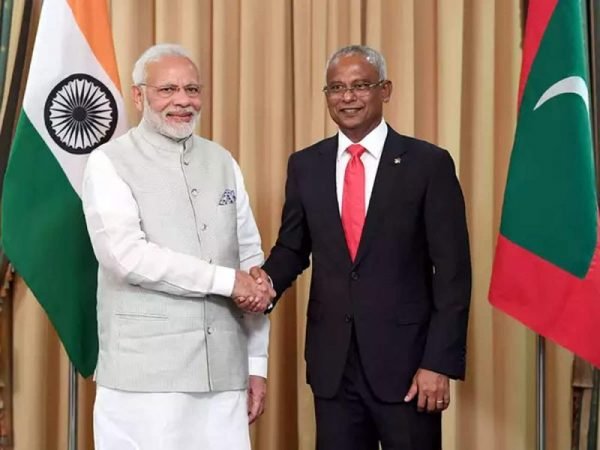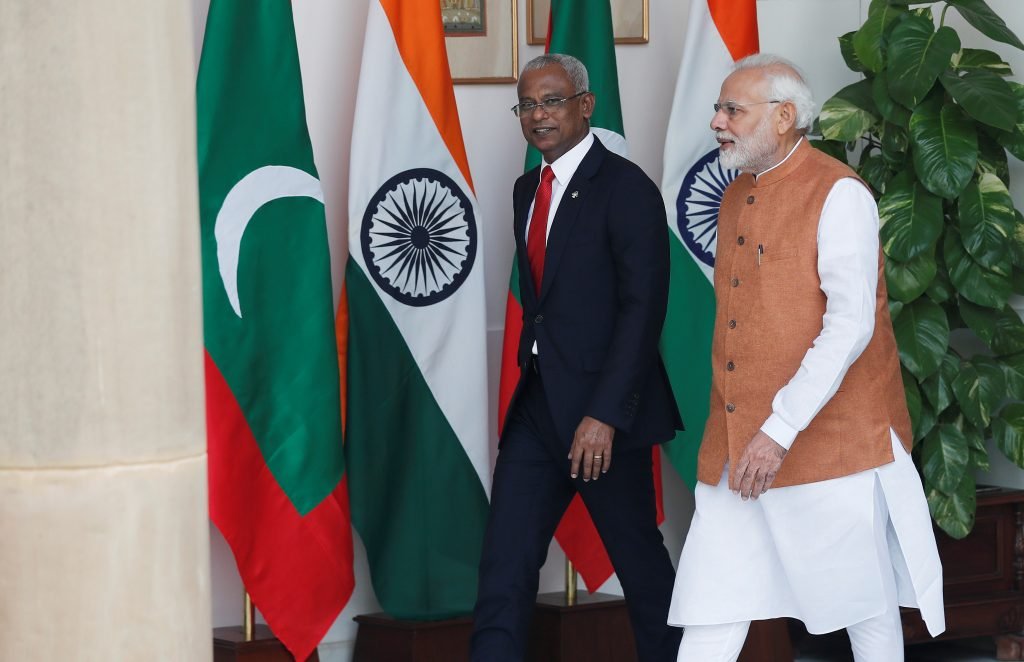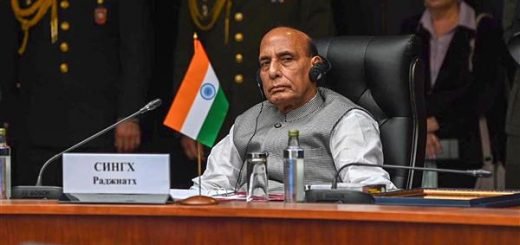India – Maldives relation have reached new heights: Recent Developments & the way forward

The Republic of Maldives is arguably the most strategically important of India’s neighbours.
Until now, India and Maldives share ethnic, linguistic, cultural, religious, and commercial links steeped in antiquity and enjoy close, cordial, and multi-dimensional relations. India was among the first to recognise the Maldives after its independence in 1965 and to establish diplomatic relations with the country. Bilateral relations have been nurtured and strengthened by regular contacts at the highest levels. Both the nations share long social connections and persistent endeavours are in progress to additionally fortify these connections. Since the foundation of strategic relations, almost all the Prime Ministers of India have visited the Maldives. Indeed, Prime Minister Narendra Modi picked the Maldives as his first foreign visit after his second term in 2019 and depicted India – the Maldives as oceanic neighbours and long-standing companions.
Though the relationship went a little off the track when Pro-China tilt Abdulla Yameen of the Progressive Party of Maldives (PPM) became president in 2013 and until now its repercussions could be witnessed with the “India Out” campaign trending for some time. The assumption of the office of President by Ibrahim Mohamed Solih in November 2018 has taken the relationship to a higher level of mutual respect and understanding with Maldives Vice President Faisal Naseem recently describing the bilateral relations between Maldives and India as reaching new heights while speaking at a special reception held by the High Commission of India in the Maldives, to commemorate India’s 75th Independence Day. Prime Minister Narendra Modi also went to the inauguration of President Solih and set up an individual affinity with the Maldivian leader. President Solih, then, responded in kind when he paid his first abroad visit to India in December 2018. During this visit, India offered the Maldives a monetary help of $1.4 billion and 1,000 grants over the course of the following five years. PM Modi, after reassuming office in June 2019, again paid a state visit to the Maldives in an unmistakable exhibit of the significance of the country. India’s policy of ‘Neighbourhood First’ and Maldives’ policy of ‘India First’ seem to be in absolute sync with each other and the broad bilateral ties rest on the foundation of mutual trust, understanding and sensitivity to each other’s concerns.
One of the key areas where India is assisting the Maldives is connectivity and civilian infrastructure. Apart from seven major projects under Indian line of credit (LoC) of $800 million, India has announced another LOC of $400 million and a special grant of $100 million for the Greater Male Connectivity Project, a 6.74 km long bridge, also the biggest new development project by India in its neighbourhood in recent years, signed recently, seeking to link Male to three other islands i.e, Villingli, Gulhifalhu and Thilafushi through a series of bridges, causeways, and roads. The project will provide a major fillip to the Maldivian economy.

Furthermore, India and Maldives have recently signed five agreements that would boost infrastructure in the island nation. The pact included an Amendatory Agreement to repurpose an older EXIM Bank of India Line of Credit of USD 25 million for Road Development, a Letter of Intent between EXIM Bank and local authorities for financing a housing project of 2000 units in Hulhumale and MoU on grant funding USD 0.5 million for a fish processing plant in Kendhikulhudhoo in northern Maldives.
Cooperation Between India & Maldives:
▪ Security Cooperation: Through the decades, India has rushed emergency assistance to the Maldives, whenever sought.
In 1988, when armed mercenaries attempted a coup against President Maumoon Abdul Gayoom, Operation Cactus was announced where India sent paratroopers and Navy vessels and restored the legitimate leadership.
Further, joint naval exercises have been conducted in the Indian ocean and India still contributes to the security of the maritime island.
▪ Disaster Management: The 2004 tsunami and the drinking water crisis in Male were other occasions when India rushed assistance.
At the peak of the continuing COVID-19 disruption, the Maldives has been the biggest beneficiary of the Covid-19 assistance given by India among all of India’s neighbouring countries. In fact, Maldives was the first country to receive Covid-19 vaccines from India when India gifted 100,000 doses in January 2021.
When the world supply chains were blocked because of the pandemic, India continued to provide crucial commodities to the Maldives under Mission SAGAR.
▪ People To People Contact: Technology has made connectivity easier for everyday contact and exchanges. Maldivian students attend educational institutions in India and patients fly here for super speciality healthcare, aided by a liberal visa-free regime extended by India.
Creation of an Air Travel Bubble to facilitate movement of people from both sides for employment, tourism, medical emergencies etc. The Maldives was the first neighbouring country with which an air bubble was operationalized.
▪ Economic Cooperation: Tourism is the mainstay of Maldivian economy. The country is now a major tourist destination for some Indians and a job destination for others.
The significant turnaround in India’s relations with the Maldives and its height to an essential high is a prominent example of overcoming adversity in our neighbourhood diplomacy. The accompanying merits that can be drawn from this excellent achievement:
• Individual inclusion of the PM on the Indian side and the President on the Maldivian side has been a critical factor in the example of overcoming adversity up until now.
• The external affairs ministry deserves credit for speedy implementation and follow-up of projects and commitments made at the highest level.
• Strategic convergence between the two countries was made possible because of the policies of India First and Neighbourhood First.

• Maldives’ own objectives in the Indian Ocean are not very different from our own policy of Security and Growth for All in the Region. India’s strong commitment to being a net maritime security provider in the region can be dovetailed with Maldives own desire for maritime security.
• Thanks to the people-centric projects aided by India such as capacity building, ITEC programmes and the crucial health sector, India is seen by the ordinary people of Maldives as a benevolent and friendly power. The importance of this aspect cannot be overemphasised.
The way forward:
• India – Maldives defence cooperation will enhance India’s capabilities to monitor Chinese maritime and naval movements along vital sea lanes of communication that run alongside the Maldives.
• In accordance with the “Neighbourhood First Policy” of the government, India must remain a committed development partner for stable, prosperous, and peaceful Maldives.
In conclusion, the exemplary bilateral cooperation between India and Maldives could serve as a useful template for developing our ties with other neighbours as part of India’s Neighbourhood First policy. India has always supported and developed Maldives. Being able to stay as companions is vital and both must always realise the part, they play to each other. The recent infrastructural projects will also prove to be important developments for the economy, trade to trade understanding between the two countries.


















